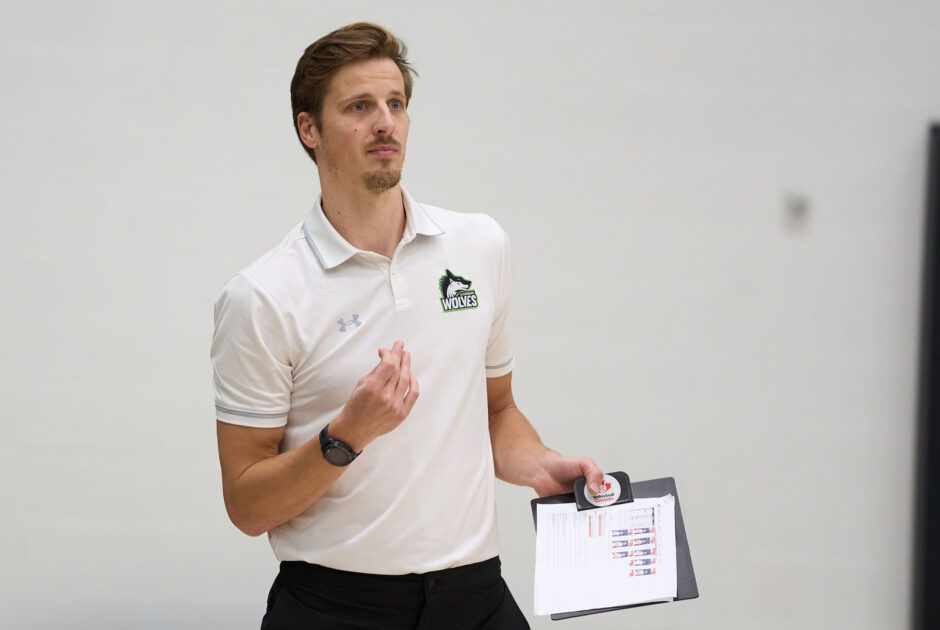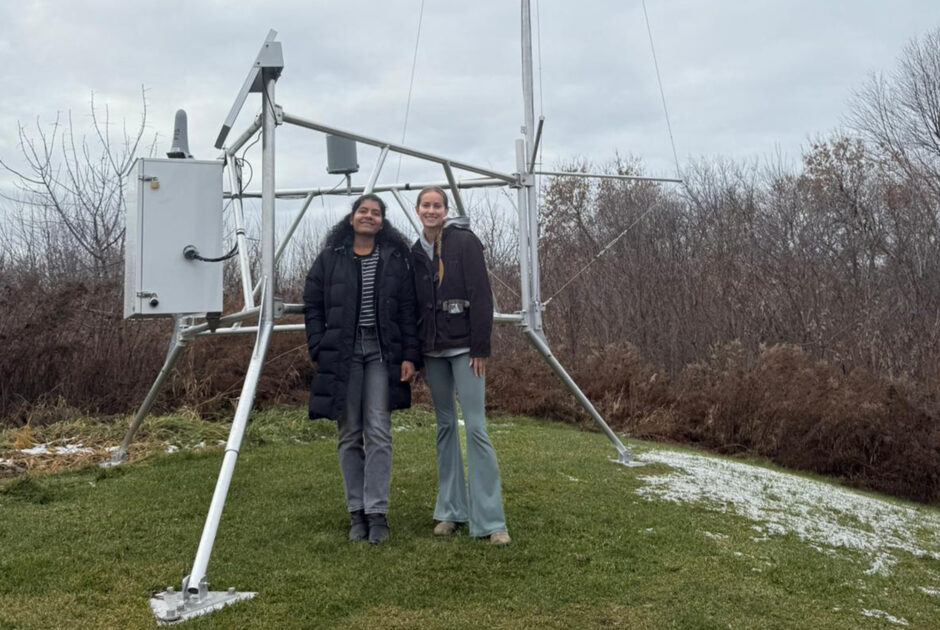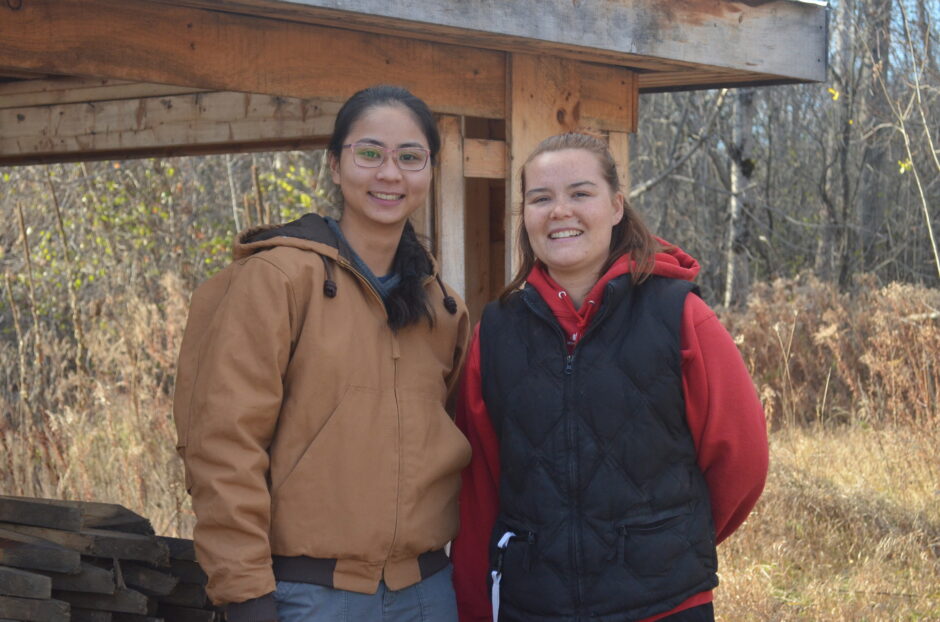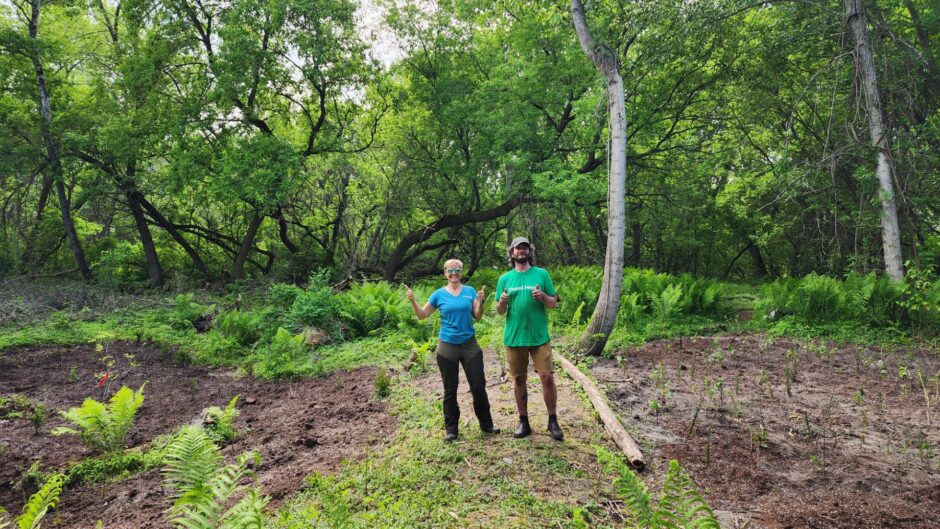Integrated learning helps students contribute to social sector success
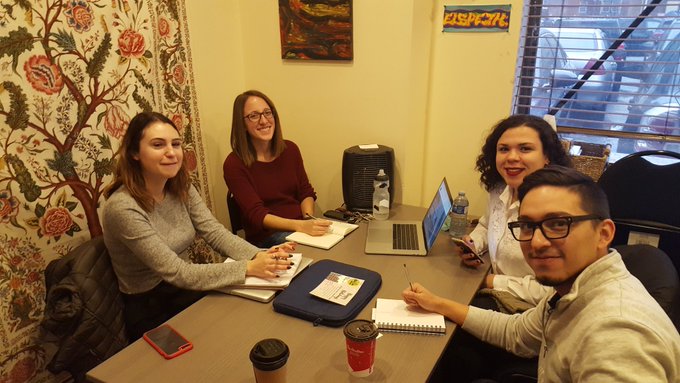
It is the end of the day in August 2021 and students in Algonquin’s television broadcasting program have just finished their last round of filming for a collaborative project with the CHEO Research Hospital. Dr. Samantha Boggs, a pediatric ICU doctor and researcher, is watching closely as the students act out her scripts and film cardiac arrest scenarios. The plan is for them to be used to build an online CPR training game that Boggs hopes will one day help save lives.
Bringing this kind of online training to the general public would represent a significant step forward for the healthcare sector. But it’s one that can often get caught up in red tape and discussions about “all of the reasons that something might be hard to do,” said Boggs.
Developing and delivering the production quality audio/visual media assets for this project is where the students, working as part of the Algonquin College’s Social Innovation Lab, are playing a crucial role in bringing Boggs’ idea to life.
Students leverage their new skills in videography, script-writing, audio recording and editing to deliver complex technical and creative support. Boggs, working with a limited research project budget, simply could not otherwise afford to access these multimedia assets. For their part, the students get the opportunity to build a portfolio to showcase their skills and expertise and at the same time do some good in the world.
Integrated learning is foundational to the college experience, but work terms and internship opportunities are traditionally focused on supporting the private, or government sectors. In 2017, the McConnell Foundation delivered a report calling on post-secondary institutions to consider how students could contribute to also building social infrastructure.
As a response to the report, Algonquin’s Social Innovation Lab launched the Service Learning in Design & Engineering program in 2018. Mirroring the integrated learning model for the private and government sectors, SLiDE leverages student technical talent to help local social service agencies and organizations.
“SLiDE allows us to tackle social issues that are not typical when we think about applied research, and we have been very fortunate to be able to contribute to that space,” said Claude Brulé, Algonquin College’s president and ceo, speaking to students on campus in November 2021.
Leveraging students’ technical talent to help Ottawa’s 2000 plus registered charities, NFPs and NGOs, Brulé explains, is an invaluable way for the college to expand its impact and support the community.
SLiDE was established in part through a grant from the College and the Community Social Innovation Fund funded by the Social Sciences and Humanities Research Council of Canada and partnered with several other research institutes and agencies. Operating within this funding model, SLiDE clients are not charged, but still receive meaningful technical services, support and outcomes that they could not otherwise afford.
“[Social sector organizations] don’t have excess funds that they can say I can use some money and do this, right, so that’s why we built the Lab,” said Kevin Holmes, managing director of SLiDE.
Kyla Gaudreau, a graduate of the advertising and marketing communications program, participated in the program’s second year, SLiDE 2.0. Gaudreau says she is passionate about “helping the helpers” and SLiDE gave her the opportunity to make a difference.
“Being able to help those who don’t have the know-how, or the technology, or the people-power,” said Gaudreau is key as social sector organizations often lack the tools and the skills to adopt digital tools. “They are trying to keep the lights on and do the best work they can do,” she said.
Students who work with SLiDE come from various programs ranging from interactive media design, mobile app development to television broadcasting. Once hired, students are paid a living wage, and work on digital media projects pitched by Ottawa’s social services sector through an open call online portal on the website.
“Essentially, we advise the community that we are looking for projects, and we ask them to tell us a bit about what their organization does, and its mission and how it, who it helps, essentially. And what kind of help they might require,” shared Holmes.
Students apply to join SLiDE, and if selected join a student team to assess and choose projects for their work term. By design, the cohort teams are multi-disciplinary, and it is the cohort’s combined technical competencies that directly influence their project selection.
All work is overseen by Holmes, but it is the students who lead and manage the projects from start to finish. Simulating a real-world agency environment, from intake to project wrap-up, students assume leadership roles to manage client relationships and the project deliverables.

“I was the liaison with the client,” said Cesar Guerrero, member of SLiDE’s first cohort. “That part of the soft skills that you need to interact with the clients, that was a great experience. Especially in my last couple of semesters where I was beginning to look at work outside and getting into the industry. Those were very valuable skills they taught me.”
Guerrero, now a graduate of the mobile application design and development program, was a member of SLiDE 1.0. His team worked on a project with Operation Come Home’s social enterprise BottleWorks.
This experience was extremely gratifying because the team could see the immediate impact on the organization, but also helpful in building a body of work.
“I was able to put all of my skills to use,” said Guerrero. “That really helped me to showcase my skills as a new grad. It starts to dive into real industry use cases, and they like that.”
Guerrero’s experience was so positive that he recommended his sister, Cecilia Guerrero, apply while she attended the college in the graphic design program. Taking her brother’s advice, Cecilia was part of SLiDE 5.0, which was one of the first cohorts to work through the pandemic.
COVID-19 pandemic measures significantly impacted the delivery of service and experience, but SLiDE adapted and carried on. Evolution is a part of a healthy organization and SLiDE itself continues to evolve to deliver on its mandate and serve its community.
In January 2022, Algonquin College joined 19 other Partner Institutions as part of Map the System Canada. Map the System Canada at Algonquin College is a collaboration between faculty from the Social Innovation Lab, the Human-Centred Design Institute and the Business – Management and Entrepreneurship program.
This global competition exists to connect socially-conscious students, researchers and practitioners from across Canada, and challenges them to research, explore, understand and ultimately explain and deep understanding of the pressing social and environmental challenges facing our world today.
When asked whether he was aware of the social service agencies and programs in Ottawa prior to joining SLiDE, Guerrero shared that he had not been. Getting to see how many different organizations are trying to help people in need in Ottawa was an eye-opening experience that changed how he looks at the importance of the social sector.
“I am definitely a lot more open to volunteering, and volunteering as part of work as well,” Guerrero said, “whenever we get volunteer days I do try and go out and see who I can help because there really are a lot of people who just need a helping hand.”





